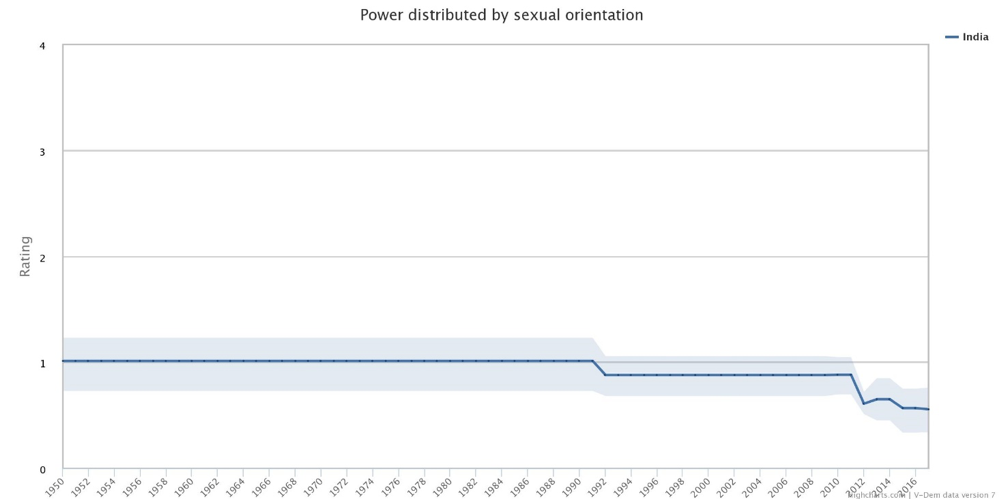Extended rights for the LGBT community in India
By: V-Dem Staff
Sep 21, 2018
The Supreme Court in India recently decided to overrule a 157-year old colonial era law which criminalises certain sexual acts as "unnatural offences". The law meant that same-sex relations were punishable with 10 years in prison. This new court ruling, that entails that discrimination on the basis of sexual orientation is a violation of fundamental rights, is hence a huge victory for the LGBT community in India.
This week’s chart is based on the V-Dem ‘Power Distributed by Sexual Orientation’ Indicator, which measures how the LGBT community fares across the world in terms of their political power. The data covers both countries and regions from 1900 to 2017. The scale goes from 0-4, where the value 0 means that LGBT members of the polity are entirely excluded from the public sphere and thus deprived of any real political power. In the graph, we can see that India is still at a low level, a level where LGBT members of the polity have much less political power than heterosexual citizens in the sense that LGBT citizens enjoy formal rights to participate in politics but are subject to informal norms that often serve to exclude them from the halls of power. Between 2010 and 2017, the situation even deteriorated slightly but perhaps the recent reform will turn this negative trend.
If you would like to learn more about this specific indicator or others that are included in the V-Dem dataset, use our online analysis tool at v-dem.net.


